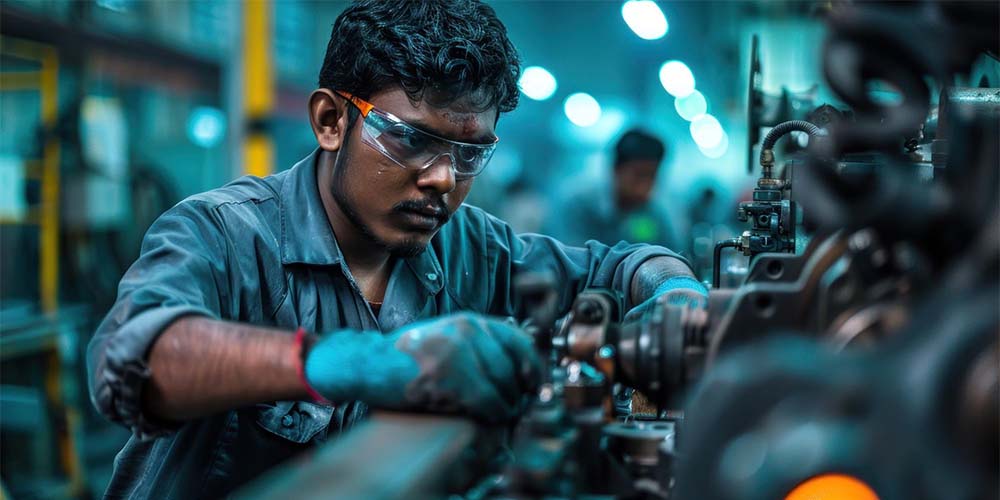
In today's world, India's tech startups are changing how they grow and find talent. This change is not just a trend; it shows a better understanding of the challenges and chances ahead for these startups. As they deal with economic uncertainty, tech-startups are focusing on new ways to grow. They are using advanced technologies, improving customer experiences, and building strong teams that can adjust to market changes. Finding the right talent is very important, as skilled workers are key to any successful tech startup. The competitive tech in India has made startups rethink how they hire. They now look for not just technical skills but also cultural fit and adaptability. This well-rounded approach to hiring is vital for startups that want to succeed in a changing environment. In short, India's techs are focusing on growth and are committed to attracting and keeping top talent. As they keep innovating and adapting, they are preparing for a bright future in the tech world. The road ahead may be tough, but the strength and creativity of India's startups will play a key role in shaping the industry.
Kartik Narayan
Business Standard, June 30, 2025
On MSME Day, we reflect on the significant role of India’s 63 million Micro, Small, and Medium Enterprises (MSMEs). These enterprises contribute over 40% to the country’s exports, showcasing their importance in the economic landscape. However, their impact goes beyond mere economic contributions; they are potential accelerators of inclusive growth and innovation. MSMEs are vital for fostering growth and innovation across various sectors. They create jobs, stimulate local economies, and empower communities. By supporting these enterprises, we can unlock their potential to drive sustainable development and enhance the quality of life for many. The growth of MSMEs is crucial for achieving a balanced economic environment. They often serve as the backbone of the economy, providing essential goods and services while promoting innovation. As these businesses thrive, they contribute to a more equitable distribution of wealth and opportunities. Innovation within MSMEs can lead to groundbreaking solutions that address local and global challenges. By harnessing creativity and resourcefulness, these enterprises can develop new products and services that meet the evolving needs of consumers. This innovation not only boosts their competitiveness but also contributes to overall economic growth. In conclusion, on this MSME Day, let us recognize the importance of supporting India’s MSMEs. By fostering an environment that encourages growth and innovation, we can ensure that these enterprises continue to play a pivotal role in driving inclusive growth. Their success is intertwined with the nation’s prosperity, making it essential to invest in their development and sustainability.
Kartik Narayan
Et Edge, June 27, 2025
Quick commerce platforms are currently grappling with a significant shortage of delivery partners, which poses a serious challenge to their operations. As demand continues to surge rapidly, fueled by the opening of new stores, the existing fleet capacity is struggling to keep pace, leading to potential delays and customer dissatisfaction.
Kartik Narayan
Financial Express, June 25, 2025
There’s only so much these companies can do in terms of increasing payouts. So they’re trying to retain riders by offering insurance and other benefits.
Kartik Narayan
MSN, June 20, 2025
India’s energy employment story is no longer centred around smokestacks and coal yards. As growth in thermal power slows, hiring is pivoting toward roles linked to emerging technologies and decarbonisation.
Kartik Narayan
PV Magazine, June 19, 2025
The resurgence in hiring signals that startups are regaining confidence, not just in funding cycles, but in the long-term promise of India’s digital economy.
Kartik Narayan
BW Disrupt, June 16, 2025
With 57.4% of employers identifying it as their preferred city, Bangalore reaffirms its position as India’s tech capital.
Kartik Narayan
CXO, June 13, 2025
At TeamLease, we have witnessed a 25% + CAGR in demand for green energy roles between FY24 to FY25.
Kartik Narayan
Economic Times, June 05, 2025
The future lies not in simply expanding headcount, but in shaping highly specialised, flexible teams that can scale, evolve, and thrive amid continuous market shifts.
Kartik Narayan
Economic Times, May 29, 2025
AI in HR is poised to revolutionize the way organizations operate. By integrating advanced technologies, AI in HR will significantly enhance productivity across various departments. This transformation allows for more efficient processes, enabling teams to focus on strategic initiatives rather than mundane tasks. Moreover, AI in HR will personalize services at scale, tailoring experiences to meet the unique needs of each employee. This level of customization fosters a more engaged workforce, as individuals feel valued and understood. With AI-driven insights, HR professionals can better align their offerings with employee expectations, leading to improved satisfaction and retention. Empowering employees is another critical aspect of AI in HR. By leveraging data analytics, organizations can identify skill gaps and provide targeted training opportunities. This not only enhances individual capabilities but also contributes to the overall growth of the company. As AI in HR continues to evolve, it will break down traditional barriers, allowing for more flexible work arrangements and promoting a culture of innovation. The ability to analyze vast amounts of data will enable HR teams to make informed decisions that benefit both the organization and its employees. In conclusion, the integration of AI in HR is not just a trend; it is a fundamental shift that will redefine the workplace. By enhancing productivity, personalizing services, and empowering employees, organizations can create a more dynamic and responsive environment. Embracing AI in HR will ultimately lead to a more successful and sustainable future for businesses and their workforce.
Kartik Narayan
BW People, May 27, 2025
The quick commerce sector is rapidly growing in tier 2 & 3 cities, creating huge demand for blue-collar jobs (drivers, warehouse workers, etc), which increases wages.
Kartik Narayan
Money Control, May 28, 2025
The quick commerce sector is rapidly growing in tier 2 & 3 cities, creating huge demand for blue-collar jobs (drivers, warehouse workers, etc), which increases wages.




